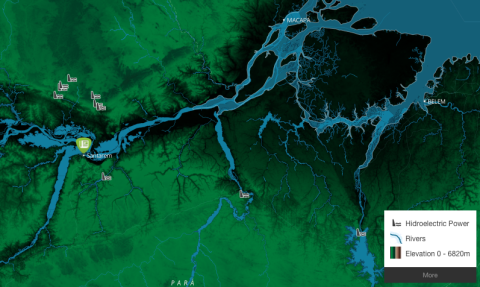
InfoAmazonia is partnering with local communities to improve water quality monitoring along Brazil's Tapajós River region.
Data security and safety tips, monitoring water quality, how to make maps with JEO and more in this week’s Knight International Media Innovators roundup.
Digital security tips from our fellows
ICFJ Knight Fellow Jorge Luis Sierra produced a tutorial in Spanish on setting up an account with Hushmail, a web-based, encrypted email service that lets journalists securely communicate with editors, colleagues and sources.
Sierra also offered helpful tips for reporting within danger zones, using data-driven analytics and mapping technology to accurately monitor trends and assess risk in these areas.
ICFJ Knight Fellow Christopher Guess provided additional steps for journalists on assignment to protect their data from theft at all stages of movement.
InfoAmazonia workshops to monitor water quality in Brazil
Through workshops along the Tapajós River region, InfoAmazonia is partnering with local communities to improve monitoring of water quality. The project advances InfoAmazonia’s mission of democratizing information in the region and holding local governments accountable to standards of public health and environmental protection in the Amazon. An interactive map details the region’s topography and hydroelectric plants.
How to make maps with JEO
JEO, a mapping platform built by ICFJ Knight Fellow Gustavo Faleiros, enables journalists to create their own mapping projects in order to track and display geographic data visually. Geojournalism.org created this helpful guide for using JEO in any project.
In response: Code for South Africa’s Living Wage calculator
Following up on last week’s launch of the Living Wage calculator, Code for South Africa encountered heavy criticism online regarding fair wages for domestic workers. Code for South Africa used the viral vitriol to generate a larger discussion on how to productively engage with trolls to promote a balanced dialogue.
Main image credit: screen grab of www.infoamazonia.org.
This post is also published on IJNet, which is produced by ICFJ.